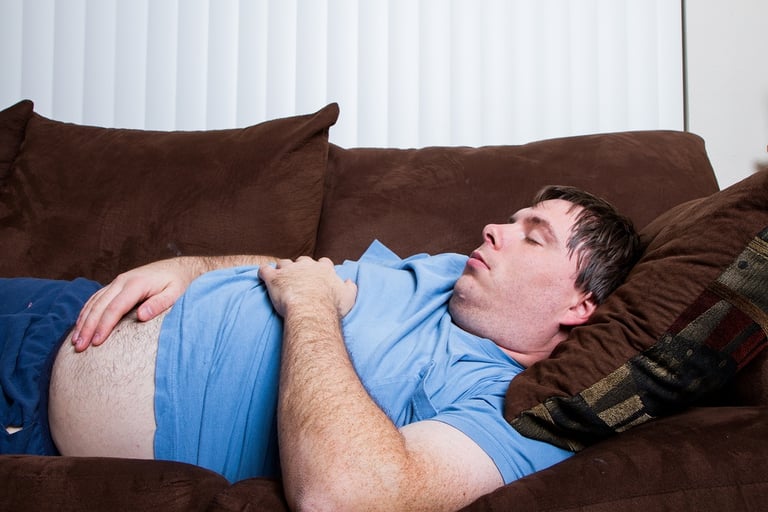
Work, feed the family, clean the house, drive the kids' here, there and everywhere ... do, do, do, run, run, run. Our schedules are enough to make our heads spin.
Our 24/7 hustle-bustle culture discourages taking time to sleep. Sleep becomes a disruptive necessity for some people, sometimes only being appeased by the shortest amount of sleep necessary to keep us going.
How Much Sleep Do You Get?
Experts tell us that adults need 7-9 hours of sleep a night, and children and adolescents need more than that. The average adult sleeps 6.5 hours per night during the workweek.
It is estimated that 18 percent of adults get less than 6 hours of sleep a night – that’s 53 million sleep-deprived people. Studies have shown that 1 out of every 3 Americans is not getting enough sleep.
In some cases, sleep deprivation is by choice, staying up late to finish watching Stephen Colbert, sewing that costume for your son’s part in a class play that he forgot to tell you was starting tomorrow, or reading that book that is too good to put down. Most of us will stay up too late occasionally for whatever reason.
In other cases, what about those people who give themselves enough time for sleep but wake up just as tired as when they went to bed? Sleep disorders can disrupt sleep and make life miserable.
In both scenarios, in the morning we are tired, groggy, not able to think, drink copious caffeine products, and scarf down carbohydrates, sweet stuff, and fast food throughout the day to try to keep our engines going.
This might go on for months or years, becoming our lifestyle.
Lack of Sleep and Obesity
America is under attack by two epidemics—A sleep epidemic and an obesity epidemic. Sixty-five to 70 percent of Americans are overweight. Almost 80 percent of overweight adults report sleep problems.
Reduced sleep duration and obesity run parallel to each other. One feeds (pardon the pun) on the other. It has been found that adults and children who get too little sleep for their age requirements tend to weight more than those who do get enough sleep.
A 16-year longitudinal study followed 60,000 women. All the women were healthy and none were obese at the beginning of the study. The women who slept 5 hours or less per night had a 15 percent higher risk of becoming obese, compared to women who slept 7 hours. The short sleepers had a 30 percent higher risk of gaining 30 pounds or more.
Michael Bruis, author of Beauty Sleep, says if a person is sleep deprived due to not getting enough hours of sleep or good quality sleep, their metabolism will not function properly.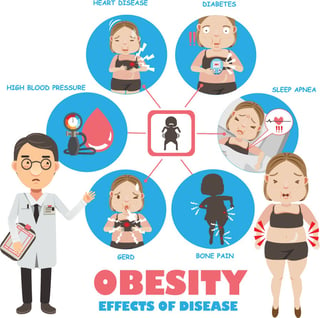
Sufficient sleep is an important modulator of weight management and decreases the risk of diabetes and insulin resistance.
When a person does not get sufficient good quality sleep, the hormone ghrelin, which controls appetite, increases in the bloodstream, making us feel more hungry during the day.
At the same time, leptin, the hormone that satiates our hunger, decreases when we do not get enough sleep. This sets up a double whammy. We feel more hungry when we may just be sleepy or tired, and we do not feel full when we do eat. This sets up the craving to eat more, especially carbohydrates.
Research was done restricting healthy young adults to four hours of sleep for six nights. During that time the subjects’ ability to process glucose (sugar) in the blood declined, some to the level of diabetics. Just after four nights—in healthy young adults!
The Centers for Disese Control and Prevention (CDC) estimates that 1 in 3 American children born in 2000 will develop diabetes, and children under 10 years of age are already developing type 2 diabetes, which usually is a condition that manifests in adults in middle age.
Sleep Apnea and Obesity
Sleep apnea, a very common sleep disorder that displays as breathing cessation during sleep, is a risk factor for obesity. Likewise, obesity is a risk factor for sleep apnea. A person who has a neck circumference of 17” or more has an increased risk of sleep apnea.
As a person gains weight, fatty tissue is deposited all over the body, including the neck, airway and trunk/chest area. This causes an increased probability of an airway obstruction because there is less space in the airway.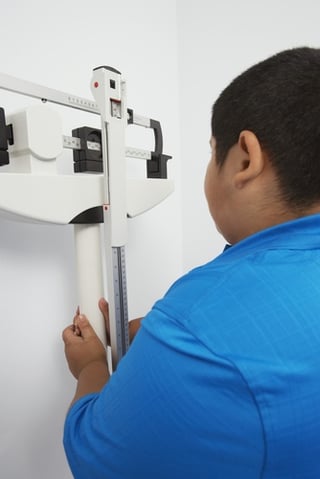
Sleep apnea many times results in hypoxia, or low oxygen levels. Every time an apnea occurs and the body is deprived of oxygen, the brain “wakes up.”
This sleep fragmentation results in poor quality sleep, even though the person may be sleeping all night.
Fragmented sleep causes stress hormones such as cortisol and adrenaline to be released. This results in metabolic changes which result in weight gain.
The more weight that is gained, the more severe sleep apnea will become due to an even thicker neck circumference and heavier trunk area.
There is an increased prevalence of sleep apnea in children. The CDC conducted a 20 year review of children aged 6-17 who had obesity-related diseases. Hospital discharges for sleep apnea increased 436% in the 20 year period.
How Much Sleep Do Your Kids Get?
Children need more sleep than adults. Pre-school children need 11-12 hours of sleep, school-age children need 10-11 hours of sleep and adolescents need 9 to 9.5 hours of sleep for optimal functioning.
The pressures of our 24/7 hustle-bustle culture affect children, also. In fact, the association between inadequate sleep and higher BMI is stronger in adolescents and children than in adults.
According to the CDC, approximately 17 percent of American children and adolescents are obese.
The Fairy Godmother Comes at 7:59 PM
Keep in mind that pre-school children need 11-12 hours of sleep a night. A recent July 2016 longitudinal study conducted by the Ohio State University evaluating sleep duration and obesity found that pre-school children who went to bed by 8:00 pm were far less likely to become obese teenagers—only 1 in 10 children with the earliest bedtime turned into an obese teen.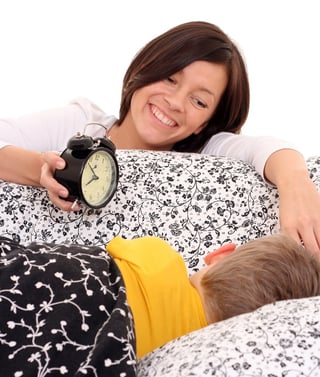
For children who went to bed between 8:00-9:00 pm, 16 percent became obese teens, and for those with bedtimes after 9:00 pm, 23 percent became obese teenagers. The study found that pre-schoolers who went to bed after 9:00 pm appeared to double the likelihood of obesity later in life. This study found that inadequate sleep and obesity are strongly connected.
The Need For More Sleep
Lack of sleep and weight gain can increase a person’s risk of developing diabetes, high blood pressure, heart disease, stroke, cancer, acid reflux, lung disease, etc.
Sleep deprivation and obesity create a vicious cycle, causing epidemic problems for our world with devastating results.
People of every age are not getting adequate, quality sleep. Getting enough good quality sleep will decrease the effects of obesity and sleep deprivation.
Adults’ committed, conscientious effort to provide adequate opportunity for their children and themselves to get enough sleep is necessary for everyone to have a fighting chance at good health.
Anyone who has a BMI of 25 or greater can reduce their risk factors for medical maladies and their complications by losing weight.
If a person snores or stops breathing during sleep, a sleep assessment is warranted. Speaking to your physician or a sleep specialist about sleep apnea and other sleep disorders may put you on the road to better health.
Sources:
Beauty Sleep, Michael Bruis
Centers for Disease Control and Prevention
Ohio State University College of Public Health, https://news.sosu.edu
National Sleep Foundation, www.sleepfoundation.org
Sleep Deprivation and Obesity, www.hsph.harvard.edu
Huffington Post
Current Opinions in Clinical Nutrition and Metabolic Care, 2011 Jul: 14(4): 402-412
The Link Between Sleep and Weight Gain, Today’s Dietician, Vol. 14 No 6, p. 48
Image Credit: Shutterstock.com





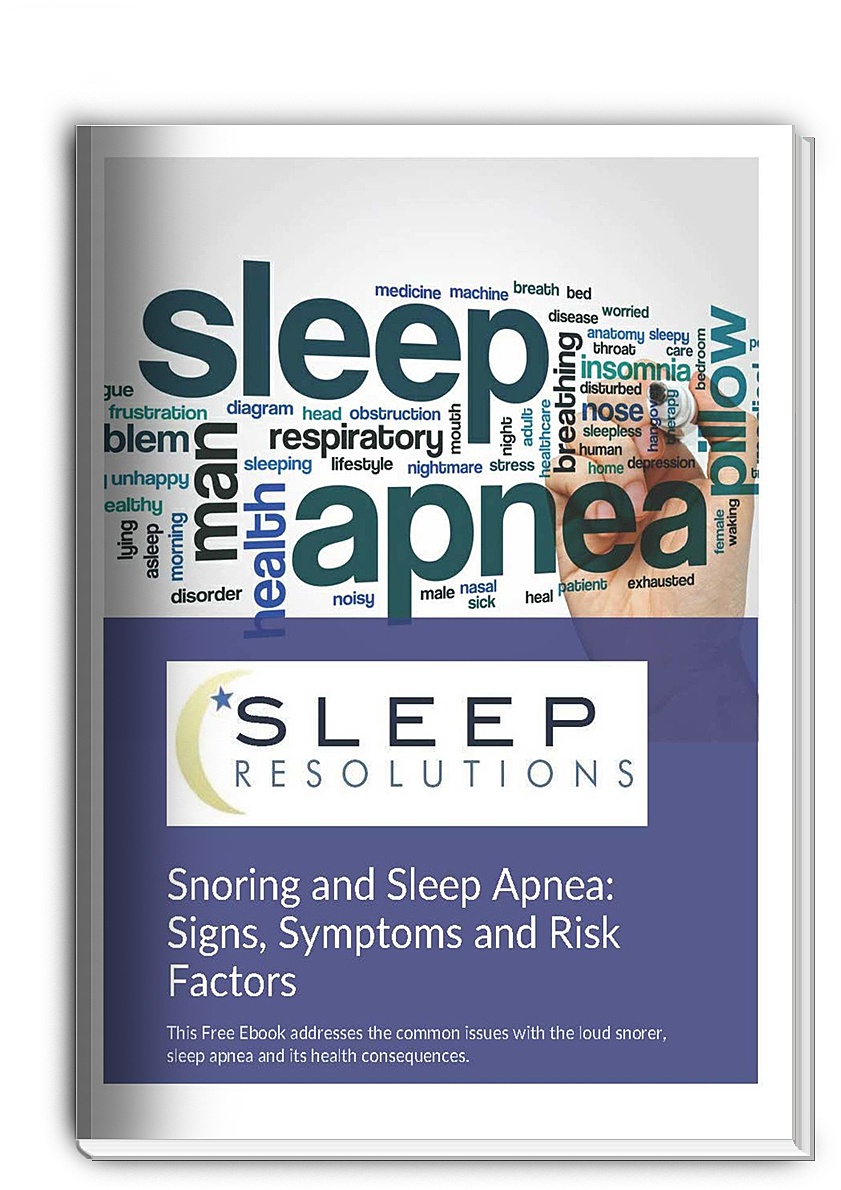

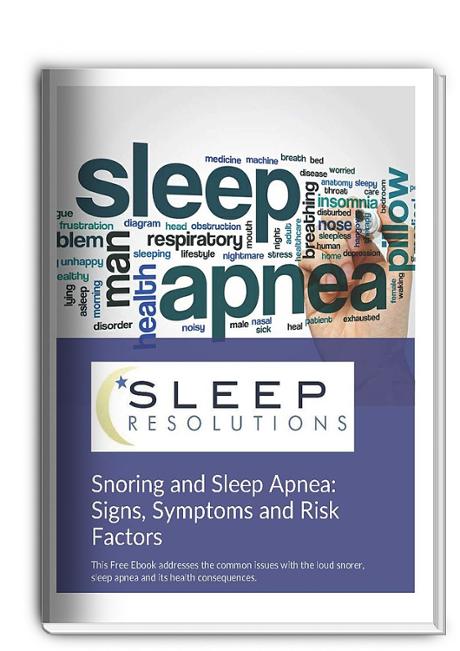

Leave a comment